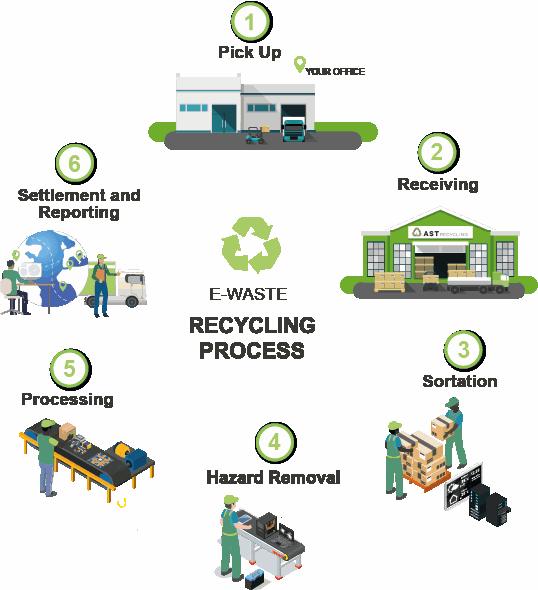
5 minute read
South Africa’s commitment to reducing food waste
from ReSource May 2022
by 3S Media
According to recent studies, 45% of the available food supply in South Africa is wasted, meaning an estimated 10.3 million tonnes of edible food does not reach people’s stomachs.
Addressing delegates at the closing event of the Food and Packaging Waste Prevention and Reduction Initiative, the Minister of Forestry, Fisheries and the Environment – Barbara Creecy – said it is vital to ensure food security through the implementation of the extended producer responsibility (EPR) scheme for packaging goods.
Advertisement
The EPR is a policy approach, originally published in November 2020, under which producers are given significant responsibility – financial and/or physical – for the treatment or disposal of their post-consumer products.
Food waste
Reflecting on South Africa’s progress regarding achieving the UN’s Sustainable Development Goal (SDG) 12.3 of reducing food loss and waste by 50% by 2030, Creecy pointed out that the Covid-19 pandemic has aggravated the existing challenges facing food production and consumption.
However, it also provided opportunities to rethink practices as consumer buying habits changed and global supply chains had been disrupted. In 2018, South Africa generated 55.6 million tonnes of general waste, of which 19 million tonnes was organic waste.
The Food and Packaging Waste Prevention and Reduction Initiative aims to address food security from the perspective of avoiding food waste. Food loss and waste is a recognised global issue that is also affecting South Africa.
According to the Department of Science of Innovation and the CSIR, approximately 10.3 million tonnes of food and beverages that make up 34.3% locally produced products are wasted per year. The food waste amounts to R61.5 billion annually.
“While the country has these shocking food waste statistics, we also have a problem of acute food security. The Integrated Food Security Phase Classification is a common global scale for classifying the severity and magnitude of food insecurity and malnutrition; 9.34 million people reportedly live without food security. Urgent action is required to reduce food gaps and protect livelihoods,” Creecy said.
Solution
The minister emphasised the need for urgent intervention directed at identified areas and populations with food deprivation that threatens livelihoods, despite the causes, context or duration. South Africa’s deteriorating food security was mainly driven by the Covid-19 pandemic, high food prices, drought and economic decline in recent years.

Statistics South Africa indicates that almost 20% of South African households have inadequate access to food.
“As the government, we are working hard in reviewing existing legislation and developing new policy instruments for better management of our waste, and to encourage and inspire innovation in the waste management and food production.
“2022 is a vital year in the implementation of the [EPR] schemes for packaging products. We have seen that a large number of producers have come forward to register and there are a number of producer responsibility organisations that have been registered to manage packaging products. The department is working with stakeholders in support of the EPR schemes and their implementation,” Creecy said.
In March, government – as well as various member states at UNEA-5.2 – reached a resolution to curb plastic pollution. The department said it realises the need to ensure that there is a phased transition for plastic packaging, which also addresses the concerns of the domestic plastic industry, given its connection to the food industry.
The National Waste Management Strategy (NWMS) forms part of government’s strategic priority to minimise waste that goes to landfill by 45% by 2025.
As a response to the NWMS, a Draft Food Loss and Waste Strategy is under development and set to: • increase awareness of the impact of food waste
20% 55.6 MILLION TONNES
Statistics South Africa reported that 20% of South African households have insufficient access to food In 2018, South Africa generated 55.6 million tonnes of general waste, 19 million tonnes was organic waste, of which 65.2% ended up in landfill
• align with chemicals and waste economy initiatives • strongly integrate different disciplinary perspectives and best practices • map out the determinants of food waste generation to deepen the understanding of household practices and help design food waste prevention strategies. Creecy urged all key stakeholders in the food value chain to engage in the development of the strategy for the reduction of food losses and waste – which in turn will inform effective and efficient food waste management solutions. It will also contribute to addressing the country’s challenges related to unemployment, food security, economic recovery and growth.
Meanwhile, food and beverage waste also has a significant impact on the environment, as methane – a greenhouse gas – is produced when food spoils. Creecy emphasised that South Africa remains committed to achieving the SDGs, especially around food waste.
Globally, food loss and waste represent 8% of anthropogenic greenhouse gas emissions (4.4 gigatons CO2e annually), which offers an opportunity for meaningful reductions.
“Importantly, due to climate change and increasing temperatures and water scarcity, reducing food waste has a significant role to play in South Africa’s transition to a low-carbon society,” Creecy concluded.











